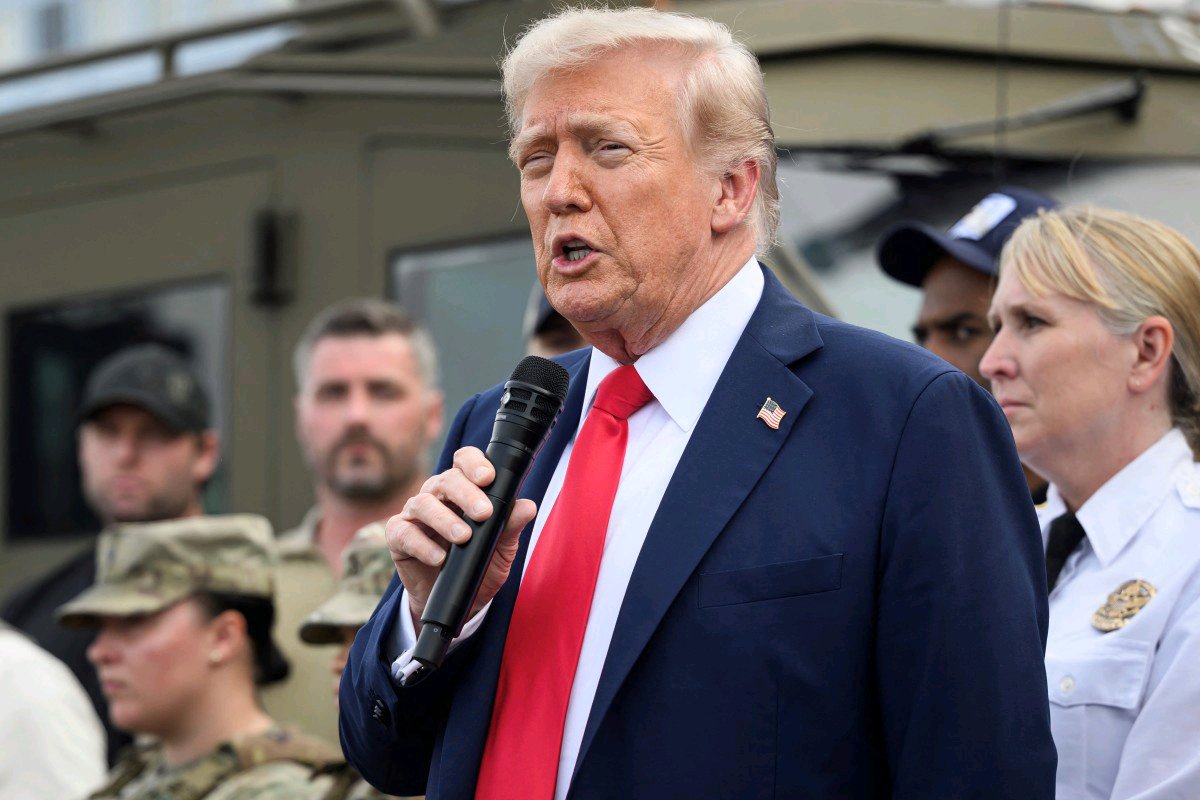According to a report by Leadership Newspaper on Tuesday September 30, United States President Donald Trump has issued a strong warning to Hamas, giving the group only a few days to accept his Gaza peace deal or face what he described as severe consequences.
The warning came on Tuesday during his meeting with senior American military officers at Quantico, Virginia.
Trump made it clear that he was not willing to allow prolonged delays, stressing that the peace deal is an opportunity for Hamas to avoid further conflict and create a stable future for the people of Gaza.
The proposed plan is structured around several key demands. First, it calls for an immediate ceasefire between Hamas and Israel, aimed at halting months of violence that have devastated communities on both sides.
In addition, the deal requires Hamas to release all hostages within 72 hours of signing, a step the United States views as essential for restoring trust and opening the door to further negotiations.
Another condition is the disarmament of Hamas, an aspect expected to spark debate as it directly targets the group’s military capabilities.
Another important feature of the proposal is a phased Israeli withdrawal from Gaza.
This part of the deal is designed to reduce tensions and gradually pave the way for local governance, while ensuring security concerns are addressed.
To oversee this process, the plan includes the establishment of a transitional authority, which would be headed by President Trump himself.
This unusual arrangement has raised questions globally but is presented as a way to ensure neutrality and accountability in implementing the agreement.
The deal also includes political restrictions on Hamas members. Under the outlined conditions, Hamas officials would not be allowed to take part in any future government roles in Gaza.
However, those members who choose to renounce violence and embrace peaceful coexistence would be granted amnesty.
This approach is intended to isolate hardliners within the movement while offering an alternative path for others to reintegrate into civic life. It represents both a punishment for aggression and an incentive for cooperation.
Trump’s plan was unveiled in Washington during a meeting with Israeli Prime Minister Benjamin Netanyahu.
The proposal has since attracted support from several world powers, including some Arab and Muslim nations that traditionally take cautious positions on the Israeli-Palestinian conflict.
Their backing signals that the deal has international weight, though its success ultimately depends on Hamas’ acceptance.
As of Tuesday, Hamas had not issued an official response, keeping the region and the international community waiting on a decision.
The coming days are expected to be decisive. If Hamas agrees, the plan could mark the beginning of a new phase in the decades-long conflict, opening the door to peace, reconstruction, and stability in Gaza.
On the other hand, a rejection could escalate tensions further and bring consequences for the group, as hinted by Trump.
With international stakeholders closely monitoring developments, the decision made by Hamas will not only shape the immediate security situation in Gaza but could also determine the future direction of Middle East peace efforts.
Under the deal, Hamas members would be barred from holding future government positions, although those willing to embrace “peaceful co-existence” would be granted amnesty.
The plan, unveiled when Israeli Prime Minister, Benjamin Netanyahu, visited Trump at the White House on Monday, has drawn support from world powers, including several Arab and Muslim nations, but Hamas was yet to issue an official response. See, More, Here>>>
Explore More News By Using The Button Above

